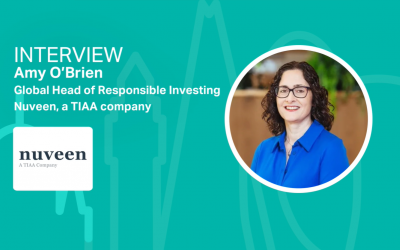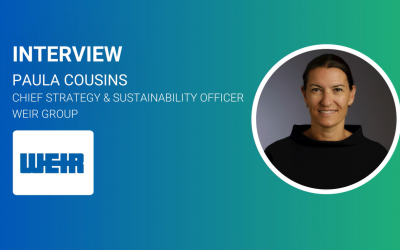Eleonore Soubeyran on why both the public and private sector should invest in climate resilience
After the Climate Innovation Virtual Forum 2020 on Wednesday 1 July, we caught up with Eleonore Soubeyran, Policy and Parliamentary Officer at the Environmental Services Association to discuss why both the public and private sector should invest in climate resilience.

After the Climate Innovation Virtual Forum 2020 on Wednesday 1 July, we caught up with Eleonore Soubeyran, Policy and Parliamentary Officer at the Environmental Services Association to discuss why both the public and private sector should invest in climate resilience.
Q. Why do you think the Green Recovery is essential as we look to BuildBackBetter?
The UK faces three significant crises: an economic recession, a climate and environment emergency, and extreme inequalities which research shows have only been worsened by the Covid-19 pandemic. We now have the unique opportunity to address these crises simultaneously by supporting a green economic recovery which would protect us from the impact of climate change and environmental breakdown, while protecting people’s economic well-being and lifting up workers and frontline communities. Over the last few weeks many organisations, including the ESA, have articulated their role in supporting a green recovery, and it is now up to the Government to make the most of this support by enabling and accelerating the transition towards a sustainable economy.
Q. What industries/technologies/projects offer the best opportunities to create clean jobs whilst keeping us on a pathway to net-zero?
Putting a circular economy at the core of a green economic recovery is key component of reaching net-zero while also creating green jobs in the UK, and we need increased support for the industries and projects that can help achieve this. WRAP estimates that a circular economy which keeps raw materials in use for longer, can create up to half a million new jobs, and the London Waste and Recycling Board notes that circular strategies could reduce global CO2 emissions by 40 per cent. A particular emphasis should be put on waste prevention, and projects that allow materials and consumer goods to be reused and repaired should be promoted. A significant increase in recycling and waste recovery infrastructures is also needed to make the best use of all resources, by optimising recovery of recyclable material as well as energy recovery from non-recyclable waste. These facilities will be widely dispersed around the country, creating green jobs in local economies in all parts of the UK. If the UK were to match the EU’s future recycling and recovery targets, the new infrastructure required to achieve this would will create around 40,000 new permanent jobs in our sector, on top of over 30,000 temporary jobs during the construction phase.
Q. Where should public and private sector investment shift towards to ensure we grow low-carbon industries and avoid future lock-ins?
Climate resilience, as well as long-term climate and environmental goals, should be built into all public and private sector investment decisions. These investments must not deepen our reliance on fossil fuels by locking-in greenhouse gas emission for decades, which would ultimately increase risks and costs for society. This can be avoided with an ambitious economic stimulus that puts net-zero and the restoration of nature at its heart, and accelerates a just transition away from fossil fuels. Investment decisions should prioritise industries that can achieve rapid cuts to carbon emissions, but must also be delivered strategically by focusing on levelling-up frontline communities and particularly low-income communities, and those which have historically suffered the impacts of pollution and climate harm.
Environmental Services Association were an Institutional Partner for the Climate Innovation Virtual Forum 2020 on Wednesday 1 July.






